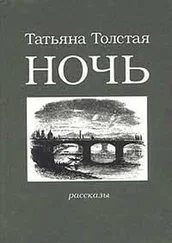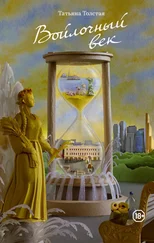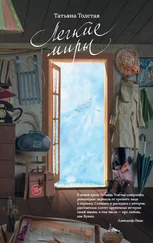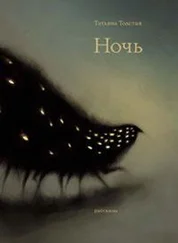Mother walks to the lake with water buckets; Dobroklonsky greets her by lifting his black academic’s skullcap. Mother says: He was friends with Benua and Yaremich, he used to be the director of the Hermitage. Father says: He lost both his sons in the war.
Dobroklonsky crosses the meadow that no longer belongs to us, he disappears behind the lilac bushes that are also no longer ours; I won’t see him again. You don’t know, do you, the names of his dachshunds. But I do! Another fifty years from now—even a hundred, or two hundred—and I’ll still be able to hear his noble clarion voice:
“Myshka, Manishka, Murashka, Manzhet!”
Those were their names, and always in that order.
§
First Nanny passed and it was unclear how to go on. Nanny had lived in our family since my mother’s birth in 1915, that faraway and already not-so-peaceful year when the first hammers started clanging at the future site of the White House. She’d leave, come back, suffer from asthma; she’d light a red lantern by an icon at night. She darned cotton stockings on a wooden mushroom; she kept a tin filled with various buttons, bits of lace, and flat elastic bands for rethreading into warm flannel pants. She let me sort the buckwheat: I’d scatter it on the oilcloth, and make a circle with my fingertip around the foreign elements: black thingies, oat-seed thingies, and tiny barrel-shaped thingies—all that weird stuff that you inexplicably find in buckwheat. Nanny smelled of clean, warm groats heated up in a pan. The lines on her face were checkered and soft.
“How you used to cry ‘Nanny, don’t leave! Nanny, dearest, don’t leave!’—but it was time for my vacation, I had to go back to my village, to see my brother Petrusha, he was waiting and waiting for me, my little brother Petrusha…” “‘Nanny, don’t leave!’” she’d repeat dreamily to me, or oftentimes to herself: she’d stand by the window, looking out somewhere in the distance and repeating my impassioned pleas to herself. Yes, I did cry—we were still living in Eden then, and I still believed that you could make someone stay with tears and love.
—
Then Aunty Lola passed, we no longer heard the tap tap tap of her cane on the staircase; it was now possible to sit and relax in the sunroom without the fear of being caught and taken upstairs for French lessons. Her personal cup—the one she drank her tea from and forbade us to touch—now idled in the sideboard; now you could just take it, but no one wanted to anymore; it seemed to be a peculiar porcelain gravestone, white with orange maple leaves and worn-away gilding. The smell of pink peonies and Acorn perfume lingered for years in Aunty Lola’s bedroom, or perhaps it just seemed that way, was just our wishful thinking.
Once, long ago, Aunty Lola’s nephew came to visit her at the dacha. He was an art student, and he spent the day at the lake drawing a study of sky and clouds. Nothing else. The grown-ups had little to say after looking at his creation. But I liked the clouds, they were of the cumulus variety, my favorite, eternal wanderers, clean celestial mountains. They’d hung above Lake Hepojarvi for a while that day, and then left. The cardboard painting was placed on top of the sideboard; it soon fell into the crack between the sideboard and the wall.
But then—a few years later—I found it; bending some wire into a poker, I pulled it out, along with a thick layer of dust, dead flies of years past, and a green leg from a plastic toy hippo. I took the cardboard picture and thus appropriated a singular day of eternity. In it is summer, and midday, and immortality. Certainly immortality.
—
Then others passed away—first this one, then that one. Each one had their own important life theme, their own love—real or imagined, happy or unrequited. Each one must have had a person, or a dream, or an idea, or a garden, or a house around which their life orbited, as if around the sun. They passed on, their personal suns went out, and there was no one left to speak of them, to think of them and to tell stories, to laugh and shake one’s head while remembering.
Even Curly, whose life’s purpose seemed to be to continually prove the law of conservation of mass—whatever is removed in one place is invariably added back in another—even he was, as we found out accidentally, an ardent supporter of Nikolaev, the one who killed the prominent Bolshevik leader Kirov (or was appointed in name as his killer; it’s all terribly dark, unclear, and complicated). I was already an adult, Curly was old and frail, and Mother sent me to bring him some medicine. I found his apartment on the Petrogradsky side, hidden in one of the gloomy courtyards: a narrow room with windows that didn’t open, dust, summer, and stale air. Tables, stools, shelves fashioned out of planks, all do-it-yourself, all from stolen boards and appropriated plywood; every surface covered with ancient magazines, stuffed and overflowing envelopes, documents that had descended from the sofa to the floor like glaciers.
“I keep writing!” Curly complained woefully. “I keep sending letters to historical magazines! To professors in Moscow, to party bigwigs, trying to explain that it wasn’t him, it wasn’t him! I knew him! Nikolaev just couldn’t have done it, he was slandered! And they keep sending rejection letters: ‘Thank you for your interest….’ They don’t want to get to the bottom of this.”
He wanted to talk, to explain to me his theory about what actually happened; the people around him must have grown tired of his truth by now: “What’s it to you, it’s over.” I was a fresh—albeit unexpected—visitor. But I, too, couldn’t be bothered to listen, and all the while, even as I walked down the dilapidated, treacherous staircase, Curly kept talking from the dimly lit landing; he kept talking and talking, his gray, but still curly, simpleton’s head hanging low.
And then he passed away, too.
§
Natasha usually brought Klavsevna a kilo of sausages; Natasha was forever Klavsevna’s lost little girl. This time she couldn’t make it: students, kids, heavy bags, the need to transfer from one trolleybus to another. So she asked me to go instead. It was the first time she had, strangely enough. It took me awhile to find the entrance. It was an old building on the Griboyedov Canal, on the seventh floor of a walk-up, and as I was climbing up this unpleasant stairway off the back entrance, out of breath, I kept thinking: How does she manage? She must be eighty-six by now.
This was one of the cleanest and most spacious communal apartments that I ever did see, and in Klavsevna’s room, where she lived and lived, time magically stood still; it was the emptiest of rooms and it got the most light, and I didn’t immediately realize why. A narrow bed with two stiff pillows and a thin blanket was nestled by the wall. In the space between the two windows, a table made of yellow plywood and a mirror in a plain frame, and, fastened with a thumbtack, a fan of postcards: the operetta star Georg Ots in a carnival mask for the role of Mister X, the Blessed Virgin Mary, and a portrait of someone unidentifiable. No drapes on the windows—the doctors advised against “looking in the dark”—so the white night evening was equally bright outside, on the empty street, and inside, in the empty room. In the window, faraway rusty roofs, chimneys, a tree growing through someone’s balcony.
She was still pretty, Klavsevna, nimble and snub-nosed, and even leggy. We had nothing to talk about, but convention seemed to dictate that we talk, and so she unexpectedly told me her life’s story—out of the blue, seated on her maiden bed, the sausages in her lap.
In 1914, Klavsevna had a fiancé—he was handsome, he was in love with her. They were walking hand in hand along Nevsky Prospect, not far from where we were sitting, by the way. On the bridge across the Griboyedov Canal they came upon some Gypsies. They laughed, decided to get their fortune told. The Gypsy told Klavsevna that anyone who married her would die. They laughed some more. Then the war started. Klavsevna’s fiancé was killed.
Читать дальше






